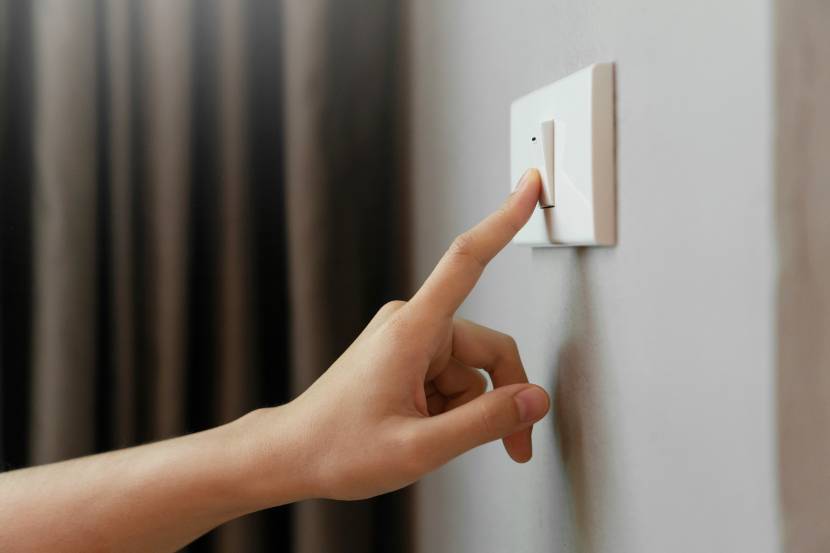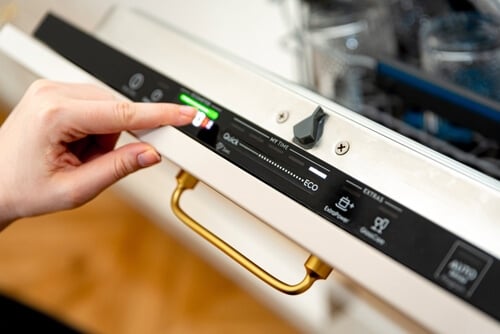Soaring gas prices have led to many energy suppliers going bust over the past few years. But what does it mean for you if your energy supplier is suddenly no longer in business? Don't worry - there are plans in place to maintain your energy supply.

Which energy suppliers have gone bust?
These suppliers have gone bust since the start of the energy market crisis.
| Bust supplier | New supplier | Took over |
|---|---|---|
|
Bulb
|
Octopus Energy
|
October 2022
|
|
UK Energy Incubator Hub
|
Octopus Energy
|
July 2022
|
|
Together Energy
|
British Gas
|
January 2022
|
|
Zog Energy
|
EDF
|
December 2021
|
|
Orbit Energy
|
Scottish Power
|
November 2021
|
|
Entice Energy
|
Scottish Power
|
November 2021
|
|
Social Energy
|
British Gas
|
November 2021
|
|
Neon Energy
|
British Gas
|
November 2021
|
|
CNG Energy Ltd
|
Pozitive Energy
|
November 2021
|
|
Ampower
|
Yü Energy
|
November 2021
|
|
Zebra Power
|
British Gas
|
November 2021
|
|
MA Energy
|
SmartestEnergy Business
|
November 2021
|
|
Omni Energy
|
Utilita
|
November 2021
|
|
Bluegreen Energy
|
British Gas
|
November 2021
|
|
GoTo Energy
|
Shell
|
October 2021
|
|
Daligas
|
Shell
|
October 2021
|
|
Colorado Energy
|
Shell
|
October 2021
|
|
Pure Planet
|
Shell
|
October 2021
|
|
Igloo Energy
|
E.ON Next
|
September 2021
|
|
Symbio Energy
|
E.ON Next
|
September 2021
|
|
Enstroga
|
E.ON Next
|
September 2021
|
|
Green
|
Shell Energy
|
September 2021
|
|
Avro Energy
|
Octopus Energy
|
September 2021
|
|
People's Energy
|
British Gas
|
September 2021
|
|
Utility Point
|
EDF
|
September 2021
|
|
MoneyPlus Energy
|
British Gas
|
September 2021
|
|
PFP Energy
|
British Gas
|
September 2021
|
|
HUB Energy
|
E.ON Next
|
August 2021
|
|
Simplicity Energy
|
British Gas
|
January 2021
|
|
Green Network Energy
|
EDF
|
January 2021
|
What happens if my energy supplier goes bust?
If your energy supplier goes bust, don't worry – your gas and electricity won’t suddenly be cut off.
You should take a meter reading and wait for Ofgem to transfer customers to a new supplier through the Supplier of Last Resort process.
If you were on a fixed deal with your old supplier, it’s unlikely this is going to be carried through to the new supplier. Instead, you’re put onto its standard variable tariff.
While you may end up with a supplier and/or tariff you don’t want, wait until the process has finished before trying to make any switches.
What happens if my old account is in credit or debit?
As well as protecting your gas and electricity supply, Ofgem’s safety net also protects any credit balances you might have.
Your new supplier should pay back anything you’re owed from your account, minus costs for the energy you’ve used during the switching process.
But with energy suppliers going bust, it’s not so clear what happens if there's a debit on your account. It depends on what your new supplier has agreed with the old supplier’s administrators.
If your new supplier has taken on customer debts from your old supplier, you need to repay the debt to your new supplier.
Otherwise, you may need to repay the debt to the old supplier or their administrator. Your new supplier is meant to explain how this works when they take over.
When will I know who my new energy supplier is and the date I'll be switched to it?
The Ofgem automatic switching process with energy suppliers going bust should only take a few days. When your new supplier contacts you, always ask to be put on their cheapest tariff.
In some cases, the switching process can take longer as Ofgem might ask the courts to appoint an administrator to run your existing supplier. Your energy supply and any credit balance is still protected.
What happens if I have a smart meter?
This depends on what kind of smart meter you have.
If you have a SMETS2 smart meter, your new supplier should be able to connect to the meter. In this case the switch should be seamless and your smart meter should work as normal.
If you have a SMETS1 smart meter, your new supplier probably won’t be able to connect to it and stops working. This is also known as going “dumb”. In this case you need to send your new supplier manual meter readings so your supplier can charge you.
You might be able to get your new supplier to upgrade your smart meter to a SMETS2 meter free of charge. Get in touch with it to see if this is the case.
What rate will I pay under my new contract with a new energy supplier?
You're put on a special ‘deemed’ contract with a new supplier. You find out the new rate when they take over, but it's likely to be on the new supplier's standard variable tariff (SVT). It's up to you how long the deemed contract lasts.
Ofgem claims it aims to get the best deal possible when it chooses a new supplier. But it also says that once the new supplier gets in touch, you should ask them to put you on their cheapest deal.
Can I switch energy suppliers after Ofgem has moved me?
Yes, you can switch energy suppliers once Ofgem has moved you and the new supplier has contacted you.
Ofgem says you won’t have to pay an exit fee if you decide to switch energy supplier after your new supplier contacts you.
What should I do if my energy supplier has gone bust the same time I'm moving home?
Find out who the supplier is for your new property and then ask it to put you on its cheapest tariff. You can also compare quotes to see if you can get a better deal elsewhere. There won’t be exit fees to pay if you decide to switch.
But if the supplier at the new address is also going bust, you should wait until Ofgem has appointed a new supplier there as well before you try to switch.
It’s a good idea to use a mail redirection service for your old address because the newly-appointed supplier should try to contact you. If you have credit on your account, they're meant to tell you how they’re going to refund the money.
As always with moving home, you should take meter readings at both the old and new property to make sure you only pay for the energy you use.
I've got a complaint - who do I go to?
Your new supplier isn't required to take on unresolved complaints from your old supplier, so this could be difficult.
But if you do have a complaint that’s unresolved, you can still discuss it with the new supplier to see if it can help.
If you feel the need to do so, you can take a complaint to the Energy Ombudsman. But you’re required to try and resolve the complaint with the supplier first.
How do I save money on my energy bill?
Although energy prices are dropping, they are still much higher than they were pre-energy crisis. If you’re struggling with your energy bills and switching isn’t the right option for you, there are ways you can manage your energy usage and save.
Here are some ways to save money on your energy bill:
- Turn your thermostat down – according to the Energy Saving Trust, lowering your thermostat by a degree could save around 10% on your energy bill.
- Turn down the valve on radiators – you might be wasting money by having some of your radiators on too high.
- Turn off switches – switching off appliances at the plug could save you £45 per year.
You could also take measures to boost your home's energy efficiency, such as:
- Using LED bulbs
- Insulating your loft
- Installing double glazing
- Using a smart meter
- Converting to solar energy using solar panels
Switching energy providers
If you're looking for certainty on your energy bills, compare energy deals to see fixed deals that are currently available.







